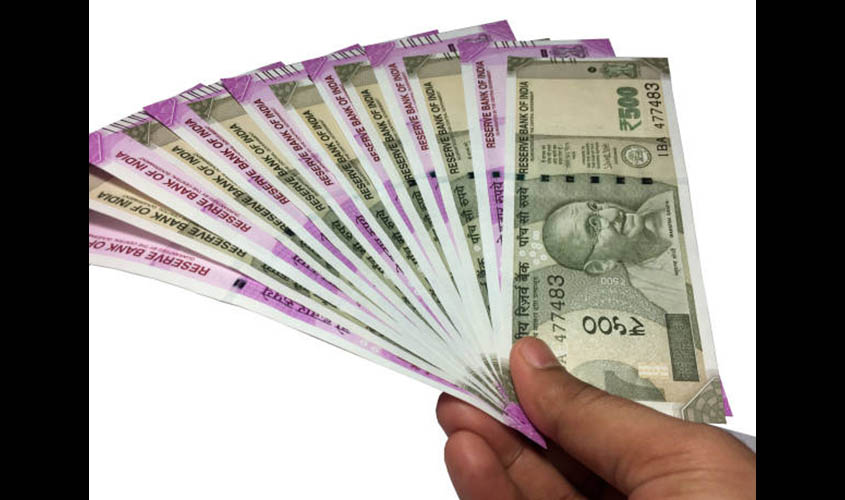The currency notes contain micro-organisms breeding and living on them.
The currency notes handled by us on a daily basis harbour dozens of micro-organisms living and breeding on them, leading to several diseases and ailments every year, according to some recent studies published in medical journals in India and some countries in the West.
According to a recent study published by the Sophisticated Analytical Instrument Facility (SAIF), formerly known as the Regional Sophisticated Instrumentation Centre (RSIC), at Indian Institute of Technology, Bombay, almost 100% of Indian currency notes are contaminated with harmful micro-organisms like bacteria, fungi and viruses which have the potential to cause diseases like flu, meningitis, throat infections, peptic ulcers, tonsillitis, tuberculosis, genital tract infection, Hepatitis C, among other such diseases.
According to Centers for Disease Control and Prevention (CDC), 36,000 Americans die of flu annually, out of which 10% of the total flu deaths is transmitted through currency notes which act as a breeding ground of harmful micro-organism. Currency notes in the United States are made up of cotton and linen, while in India, they are made of cotton and balsam which is a fertile ground for breeding germs.
The potential contamination from currency notes with harmful micro-organisms is at places like vegetable markets, butcher shops, milk parlours, pan shops, shoemakers, petrol pumps, grocery stores, chemists, among many other such places.
A recent study by scientists at the Indian Institute of Genomics and Integrative Biology in Delhi has also observed that currency notes that change hands frequently are loaded with microbes which find currency notes a suitable ground for their living.
These scientists, who conducted a study on Indian bank notes of denominations Rs 10, Rs 20 and Rs 100, identified 78 pathogens, including Staphylococcus aureus, and Enterococcus faecalis, living on them. While Staphylococcus aureus can cause skin boils, sinusitis and food poisoning, Enterococcus faecalis are found in teeth after root-canal treatments and can cause life-threatening infections.
While analysing the DNA sequence of some micro-organisms found in currency notes, scientists have found many of them to be antibiotic resistant. A scientist, who was a part of this study, observed that some of the genes in these microbes are resistant to the most common antibiotics like Penicillin and Erthromycin used to combat all sorts of bacterial infections.
According to doctors, the transfer of these harmful micro-organisms into the human body happens through direct contact, open wounds, nasal secretions and aerosols generated by sneezing and coughing.
Dr Saikiran Chaudhuri, Head of Department, Pulmonary Critical Care and Sleep Medicine, told The Sunday Guardian, “Most of these micro-organisms are air borne or droplet borne bacteria or viruses that spread very fast. As currency notes go through multiple cycle of hands, they get transmitted from an affected person to a healthy person. One of the major reasons is that we count our notes using our saliva, which, in turn, transmits these harmful organisms into our body. We should avoid using saliva to count currency notes and try to wash our hands as much as we can.”
He also said that flu, respiratory problems and skin allergies, including acnes, are some of the most common forms of diseases that spread from currency notes.
Another study published last year in PLOS ONE, an American medical journal, had identified 100 different types of bacteria on dollar bills in circulation in New York. Apart from identifying bacteria that cause acne, flu, and other diseases, it also found DNA from pets and viruses, including vaginal bacteria and even drugs on currency notes.
Research by the Forensic Science International, a journal, had identified that 92% of American currency notes have traces of cocaine which is one of the sources for Hepatitis C.
The Confederation of All India Traders has also written a letter to Union Finance Minister Arun Jaitley to assess the potential threat of diseases spreading through currency notes and has also asked the Finance Minister to take preventive measures like switching to plastic notes which can be washed. Countries like Canada, the United Kingdom, Australia, New Zealand have already shifted to plastic currencies.

